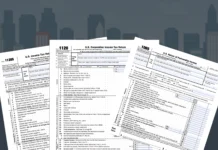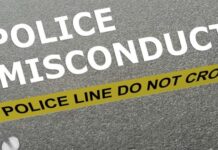Apple Inc. (NASDAQ:AAPL) rejected a court order to help the Federal Bureau of Investigation (FBI) unlock the iPhone used by one of the shooters in a terrorist attack that killed 14 people and injured 22 others in San Bernardino, California.
Judge Sheri Pym of the United States District Court of Los Angeles ordered Apple to provide “reasonable technical assistance” to the investigators of the San Bernardino case.
The FBI is seeking the tech giant’s assistance to unlock the iPhone 5c owned by Syed Rizwan Farook, who was killed together with his wife in a shootout with the police. The agency is investigating the couple’s potential communications with the Islamic State (ISIS) and other terrorist groups.
The agency is requesting Apple to disable the iPhone’s auto-erase function that activates automatically after ten unsuccessful consecutive attempts to enter the correct passcode. They are also asking the iPhone maker to submit passcode guesses electronically.
“Apple has the exclusive technical means, which would assist the government in completing its search, but has declined to provide that assistance voluntarily,” according to federal prosecutors. They requested the court order to force the tech giant to help in the investigation.
Apple worked hard to help the FBI
In a letter to customers, Tim Cook said Apple worked hard to support the government’s efforts to solve the horrible crime committed in San Bernardino. According to him, they complied with valid subpoenas and search warrants and provided requested data in their possession. The company also made its engineers available to advise the FBI and offered best ideas on a number of investigative options.
“We have great respect for the professionals at the FBI, and we believe their intentions are good. Up to this point, we have done everything that is both within our power and within the law to help them,” said Cook.
FBI wants Apple to develop a backdoor or “master key” to the iPhone
Cook added that the U.S. government is asking Apple to develop a backdoor to the iPhone, which the company considers “dangerous.” He explained that the FBI is requesting the tech giant to make a new version of iPhone operating system that would circumvent important security features, and use it on a recovered iPhone during an investigation.
“In the wrong hands, this software — which does not exist today — would have the potential to unlock any iPhone in someone’s physical possession,” said Cook.
He added that there is no guarantee that the government will limit its use in the San Bernardino case. Cook compared such tool to a master key that could be used repeatedly to open hundreds of millions of locks/devices. He said, “No reasonable person would find that acceptable.”
Government’s demand undermines freedom and liberty
Cook emphasized that the government is asking Apple to hack its own users and undermine decades of security advancement that protect its customers from sophisticated hackers and cybercriminals.
Furthermore, Cook said the FBI proposed an unprecedented use of the All Writs Act of 1789 to justify the expansion of its authority instead of asking a legislative action through the Congress.
According to him, Apple decided to oppose the court order and speak up because of its perception that the U.S. government is overreaching its authority. He said, “Opposing this order is not something we take lightly.”
“While we believe the FBI’s intentions are good, it would be wrong for the government to force us to build a backdoor into our products. And ultimately, we fear that this demand would undermine the very freedom and liberty our government is meant to protect,” said Cook.









